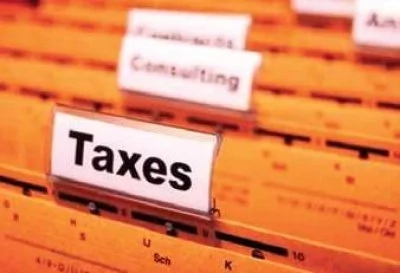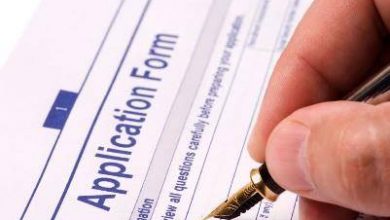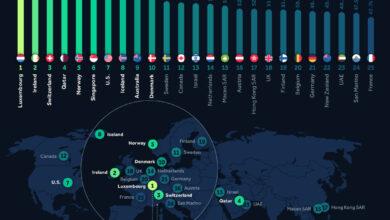Personal Income Tax Rate in Nigeria
To an average Nigerian, the term tax brings a lot to mind. First there is the memory of him dragooned into deducting a certain percentage of his frugal income to give to an undeserving country, thereby shortening his ration. In the end, he is not rewarded for his ‘generous’ contribution as evidenced by the state of things in Nigeria.
Notwithstanding, tax must be paid. Not only in your country but all over the world. It has been said by Benjamin Franklin that, ‘nothing is certain in this world except tax and death.’ Tax is even more certain than your future, how unfair!
👉 Relocate to Canada Today!
Live, Study and Work in Canada. No Payment is Required! Hurry Now click here to Apply >> Immigrate to CanadaWhat is Tax?
In simple terms, tax is a compulsory levy imposed by the government on citizens, entities or transactions for the purpose of generating revenue for the government which would be beneficial to the members of the public.
Read Also: Prospects And Problems Of Tax Administration In Nigeria

In the case of Matthew v. Chicory Marketing Board, which is the locus classicus of tax, tax was said to be a compulsory extraction of money by a public authority for public purpose or raising money for the purpose of administering government budget by means of contribution from individual persons i.e. citizens.
One thing common to both definitions of tax is the compulsoriness that comes with it. Nobody gets to decide whether or not he is paying, it is mandatory and constitutional.
‘Constitutional’ here means it is stated in the 1999 Constitution of the Federal Republic of Nigeria and it must be adhered to as Christians obey the words of the Bible.
Read Also: How To Get Tax Identification Number In Nigeria
Types Of Tax And The Laws Governing Them:
1. Companies Income Tax
This tax is paid by companies in Nigeria based on their income. What the government usually does is that, the more profit a company makes, the higher the percentage of tax to be levied on them. The tax deducted from companies is at a rate of 30%. It is governed by the Companies Income Tax Act.
2. Personal Income Tax
As the name implies, it is the tax from an individual’s personal income. It is governed by the Personal Income Tax Act.
👉 Relocate to Canada Today!
Live, Study and Work in Canada. No Payment is Required! Hurry Now click here to Apply >> Immigrate to Canada3. Capital Gain Tax
For every asset or security sold, the money deducted from the profits of the sale is Capital Gain Tax. This is governed by the Capital Gain Tax Act.
4. Value Added Tax
Value Added Tax is indirectly borne by the consumers who purchase taxable products being sold to them. The final price of a particular good has been calculated with the tax, it is the seller who deducts the tax from the goods sold and remits it to the FIRS.
Read Also: 10 Problems of Nigerian Tax System and Possible Solutions
5. Petroleum Profit Tax
This tax is paid by companies in Nigeria that function in the petroleum sector. It is levied on the income of companies involved in transporting petroleum products and is governed by the Petroleum Profit Tax Act.
6. Withholding Tax
This type of tax is a mechanism to collect other taxes. Here, taxes are withheld to balance tax liabilities that may arise from the tax returns of a particular period.
7. Educational Tax
It is not levied on Primary and Secondary schools as the name implies. It is levied on all companies registered in Nigeria in accordance to the provisions of the Companies Income Tax Act for educational purposes.
All incorporated companies in Nigeria are required to pay two per cent (2%) of their assessable profit into an Education Tax Fund. It is governed by the Education Tax Act
Stamp Duties
There are some documents that require stamping and the absence of the stamp, can render the document useless or inadmissible as evidence in a legal proceeding.
To acquire this stamp, an amount of money must be paid which is the stamp duty. All documents must be taken to the Stamp Duties Office for stamping and the money obtained will be remitted to the Federal Inland Revenue Service. It is governed by the Stamp Duties Act.
Read Also: Solutions to Tax Evasion and Avoidance in Nigeria
National Information Technology Development Fund Levy
Levies paid by Nigerian companies operating as telecommunication companies, internet service provider, bank, etc and have an annual turnover of a hundred million naira and above. The levy is paid with their Companies Income Tax.
Personal Income Tax
Of all the types of taxes discussed above, the Personal Income Tax is of utmost importance for this article. What is it about?
As earlier stated, it is the amount deducted from an individual’s income for an assessable year, from all sources inside and outside Nigeria, except for income specifically exempted under the Personal Income Tax Act (PITA), as amended in 2011.
Personal Income Tax is based on an employee’s earnings, and on the direct income or profits of individuals using the self-assessment tax system. This is governed by the Personal Income Tax Act.
For those working under an individual, it is the employer who acts as a tax authority because he or she deducts a certain percentage and remits it to the Federal Inland Revenue Services.
Read Also: The role of Taxation in the Nigerian economy
Who Pays Personal Income Tax?
By the virtue of (Taxes and Levies Approved List for Collection) Act 1988, enacted by the Federal Government, the following persons are subject to Personal Income Tax.
1. Members of the Armed Forces of the Federation.
2. Members of the Nigeria Police Force.
3. Residents of the Federal Capital Territory Abuja; and
4. Staff of the Ministry of Foreign Affairs and non-resident individuals.
Also, any person who derives income or profit from Nigeria is subject to Personal Income Tax irrespective of the fact that he or she resides outside Nigeria.
Personal Income Tax Rate In Nigeria
Currently, the Personal Income Tax Rate in Nigeria is 24% and it has been that way since the year 2011.
How And Where To Pay Personal Income Tax
As long as you are on paid employment, taxes are paid through the Pay As You Earn system as stated above. It is the employer who deducts a certain percentage of your income on a monthly basis and remits it on your behalf to the Federal Income Revenue Service (FIRS) through a specific bank as instructed by the Government.
Then, you must collect tax clearance certificate after getting your PAYE records from where you are working, because there are some processes that require tax clearance like land matters.
Read Also: Causes of tax evasion in Nigeria and effects on the economy
Penalty For Defaulters
The Personal Income Tax (Amendment) Act 2011 has codified in it, the penalties for disobeying civic duties by not paying tax. This act is a criminal offence known as Tax Evasion. The following are the penalties of tax evasion provided by the Law;
a. Anyone who makes false account statements in relation to tax payable is liable to pay the sum of #10,000.
b. A Banker who does not render information about his new customers within seven days of the following month will pay the sum of #50,000.
The offenders pay the penalties and outstanding taxes as declared by the Chairman of Federal Inland Revenue Services (FIRS), Babatunde Fowler.
In addition to that, such offender will pay the interest at the prevailing Central Bank of Nigeria minimum rediscount rate and imprisonment for a period of not more than three years as found in section 40 of FIRSEA, 2007.
It is also a criminal offence under section 41 of the Act (FIRSEA) to hinder or assault any authorised tax officer in the performance of his duties. Anyone found guilty can be liable to a fine or three years imprisonment or both.
Well, it is understandable that a whole lot of Nigerians are always loath to pay tax, considering the unrepaired roads, long arduous hours of interrupted power supply, poor health system and misuse of public funds amongst others.
However, everyone is still expected to pay tax whether or not they like it because it is mandatory and constitutional. A good citizen, as stated in section 24 of the 1999 Constitution of the Federal Republic of Nigeria is one who pays tax.





